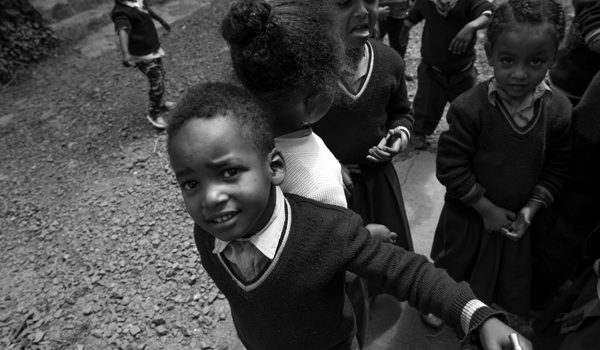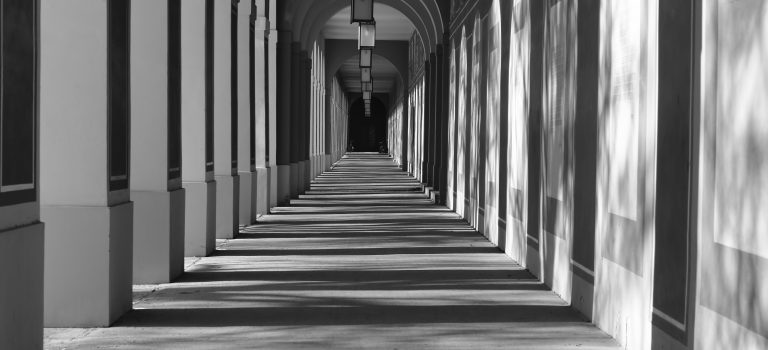We need to ask ourselves: in which world do we want to live? Do we want to let the refugees die outside our EU boarders? No, because black lives matter as ours do.
I couldn’t say “I am Charlie Hebdo” because I am also the boy in Gaza or the women in Africa dying every day without the spotlights and media attention put on them. I am all those lives killed in vain by violence, by hunger, by poverty. I don’t feel the ones closer than the others. They aren’t children of a lesser god. We are all the same.
So if we don’t want to let the refugees drown in the sea (0r being tortured and killed by Libyan militias), do we want to let them all inside the EU?
Why not? First, what does it mean “all”? Do you really think it is so nice and easy to leave your country, your language, your family, your raices, your beloved ones? Do you really think we here are so special that everybody wants to be like we are and live like we do here with us? Did you know that already today, 80% of the African refugees and migrants remain within their continent and the majority of those who leave Africa is going to Middle East and elsewhere but not to Europe?
But OK, let’s assume, 30 millions of Africans want to migrate to the EU over the next 10 years. This is less than 10% of our European population. If we distribute them equally within Europe (in effect, we don’t have a refugee crisis, we have a EU crisis, lack of solidarity with Italy, Greece, Spain), if everybody get’s 10% growth of its population, this would mean Germany would get 8 Mio over the next 10 years. 800.000 per year, the number of people that arrived in 2015/2016. This would mean a huge integration effort, yes. Jobs would have to be shared with the new immigrants, cheaper labor force would be available in our countries until they reach the same language and skill level as ours. But let’s be realistic: A part from the huge administration problems due to our bureaucracy, we absorbed those 800.000 quite well, didn’t we? Or did YOU personally have a problem or disadvantage due to an immigrant? And if so, isn’t it that your local or regional or national government neglected you situation already before? So why do you still vote for the center and right-wing parties instead of voting for those who protect the right of workers, pensions, poor housings, etc.?
Integrating immigrants is nothing special, at the contrary, it is quite normal. At least is was for decades, for centuries. Millions of Germans and Italians emigrated to the US or to Germany, Switzerland and elsewhere. Millions of people from the Balkans, from Turkey, Spain and Greece arrived in Germany, Switzerland and elsewhere. Millions of Germany migrated within Germany, from East to West, after World War II and after 1989. Society and economy absorbed them. So why is it a problem now? Both sides benefit: Cheap labor for the local industry, a better life not only for those coming but also for their families left behind.
Did you know that already today, the remittences of the African diaspora are more than the EU development aid for Africa? What this means is: allowing legal immigration to Europe would be the far better way to spend money to help Africa because this kind money arrives where it is needed most: directly at the poor families and not at the corrupt goverments.
You are not convinced? OK, if you don’t want to let the immigrants in, but you still don’t want to live in a world where men, women and children are drowning in the sea, we need to help them to make their countries a better places so they aren’t forced to migrate. Yes, this is surely what our European Politicians want to achieve or claim to achieve these days. The problem is, the current approaches by our politicians will not lead us there. They haven’t over the last 60 years, they won’t today because the entire Paradigm is still wrong.
We need a Shift of Paradigm.
No longer should we behave in this world as if it was only belonging to us, “the successful ones”, and not to everybody. No longer should we behave as if we are the better ones and have more rights, only because we are economically wealthier. We must stop thinking that we merit this wealth, that our success is due to our culture or race or because we work so hard or are so democratic by birth. This is racism.
Our economic wealth is based on the poverty of others. This is not a buzzword, but a fact. Look at our history. As a professor from the University of Pretoria put it: “The underdevelopment of Africa is not accidental, it was necessary to develop Europe. The wars in Africa were necessary to have peace in Europe. That legacy did decline, but not disappear. France wanted to get rid of Muhammed Gaddafi who wanted to unite Africa, to be stronger in the international negotiations. Preventing Africa from being an equal member in the international community is preventing the world to offer wealth for all. There was never charity from Europe, although it was said it was donation, it was for constructing their own security. No African country was designed by Africans, it was designed in Berlin, in Europe. We need to make sure that we have governments legitimately elected by the people and working for the people. We have to fight corruption. We have to re-think the European-African partnership”.
We must stop supporting wars in Africa. We need to stop selling arms. No military intervention any more. No games of throne any more: if we like a dictator we support him, if we don’t like a (maybe even elected) head of state, we bomb him. We must stop bombing head of states that are not willing to do what we want them to do (Irak, Libya, Syria), cynically in the name of “human rights”.
We must stop emptying the international seas in front of Africa. Africans should be put in the position to manage the fishing industry dominated by our countries instead. We must stop sending cheap freezes chicken wings to Africa, destroying their local chicken industry. We must not force them to accept our “EPA”, Economic Partnership Agreements, that allow us to fled their markets with our goods. In exchange to give them the chance to export what they want to us. Apart from the fact that they are already allowed to export everything but arms (“EBA”), what the hell should they export? African countries are producing all more or less the same – goods that they were forced to produce during colonialism like coffee, grain and later raw materials for our mobile phones. We must stop to damnify economically African countries.
We must stop talking from government to government only. We need to involve Civil Society on both sides. Money should go to Civil Society movements and not to corrupt regimes. My favorite is to let immigrants work here and let them send their money to their families at home. They all know far better than we our our governments where to invest it for their own benefit.
We must stop corruption. Yes, some of the African regimes are corrupt, but they are corrupted by us, by our industries and indirectly also by our governments, that at the best do nothing against corruption. The current president of Botswana stole millions of Dollars that should have gone to his people, but instead he bought a beautiful villa and yacht in the South of France. Why does the France government allow this? It would be easy to put him on a blacklist and confiscate or freeze his money. The US does this everyday with people “not wanted” by their government: freezing their bank accounts and not letting them into their country.
We must stop all this aid-stuff. 80% of the aid of all governmental organizations remain within the organizations itself or go to people of the wealthy countries. That’s bullshit. Stop it. Let’s rather invest this money here in welcoming immigrants and improving the life of our own economically weak people so they accept immigrants better. And let’s invest a smaller part of it in Civil Society movements that are not-profit-oriented. African representatives told me: Stop sending us money. Keep your money. Transfer technical know how and give us tools to build up and diversify our industries, let us add value to the raw materials we currently sell you. Yes. But that is not in our economic interest. This would mean pay more for goods produced in Africa and get competition to the goods produced here.
During the 200 year old struggle for liberté and equalité we forget about the third value, the fraternité. There is enough in this planet for all, but we need to distribute more equally. This means: less for us, more for the others. Are you ready?
In which world do YOU want to live?


